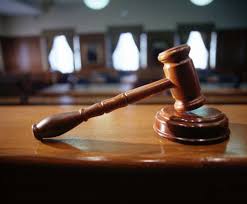Peculiarities of appointment to the position of a judge under martial law, making changes.
Introduction
In the conditions of martial law, which may arise as a result of external aggression or internal armed conflicts, the functioning of the judicial system of Ukraine must be ensured by special legal mechanisms. This is necessary to maintain law and order, protect the rights and freedoms of citizens, and ensure proper justice. For this purpose, it is proposed to amend Chapter XII "Final and Transitional Provisions" of the Law of Ukraine "On the Judiciary and the Status of Judges"
regarding the specifics of the appointment of a judge under martial law.
Analysis of current legislation
Law of Ukraine "On the Judiciary and the Status of Judges"
The Law of Ukraine "On the Judiciary and the Status of Judges" defines the procedure for appointing judges, their powers and status. However, the current legislation does not contain sufficiently clear provisions regarding the specifics of the appointment of judges under martial law, which may complicate the prompt appointment and ensuring the continuous operation of the judicial system.
Law of Ukraine "On the Legal Regime of Martial Law"
This law regulates the legal regime of martial law, including restrictions on the rights and freedoms of citizens, but does not contain specific provisions on the functioning of the judicial system and the appointment of judges during martial law.
Suggestions for changes
New subsection to Chapter XII "Final and Transitional Provisions"
It is proposed to add a new subsection to Chapter XII of the Law of Ukraine "On the Judiciary and the Status of Judges", which would regulate the specifics of the appointment of judges under martial law.
Proposed provisions of the new subdivision
Special procedure for appointing judges:
In the conditions of martial law, the President of Ukraine, at the request of the High Council of Justice, has the right to appoint judges to vacant positions without holding a competition, if there are relevant grounds and taking into account the recommendations of the High Qualification Commission of Judges of Ukraine.
Simplified verification procedure:
In the conditions of martial law, a simplified procedure for checking candidates for the post of judge may be introduced, which includes checking for compliance with the basic requirements established by law, without conducting additional stages of the competition.
Temporary appointments:
If necessary, in the conditions of martial law, temporary appointments of judges may be made for the period until the termination or abolition of martial law. After this period, such judges must go through the standard confirmation procedure.
Ensuring the continuity of judicial proceedings:
In martial law, the continuity of the work of the courts should be ensured, including the possibility of temporary transfers of judges to other courts or
regions where greater security and stability are ensured.
Protection of rights and freedoms:
The appointment of judges under martial law must be carried out taking into account the need to protect the rights and freedoms of citizens, which includes ensuring the independence and impartiality of judges. You may be interested in the following articles: lawyer's consultation, lawyer's consultation, document analysis, legal situation analysis, written consultation, document review by a lawyer, lawyers' documents, lawyer's help online, lawyer online, legal opinion, lawyer's legal opinion, lawyer online.
Amendments to other normative legal acts
In order to ensure the consistency of the legislation, it is proposed to make appropriate changes to the Law of Ukraine "On the Legal Regime of Martial Law" and other legal acts related to the functioning of the judicial system.
Conclusion
Proposals for amendments to Chapter XII "Final and Transitional Provisions" of the Law of Ukraine "On the Judiciary and the Status of Judges" reflect the need to implement special mechanisms to ensure the effective functioning of the judicial system in martial law conditions. Given the potential threats to law and order and human rights, making these changes can help ensure the continuity of the judiciary, preserve the independence of judges and protect the rights and freedoms of citizens even in emergency situations. Such measures reflect the rapid response of legislation to challenges that may arise in the context of a military conflict, and are designed to ensure stability and legal certainty in the state.

































